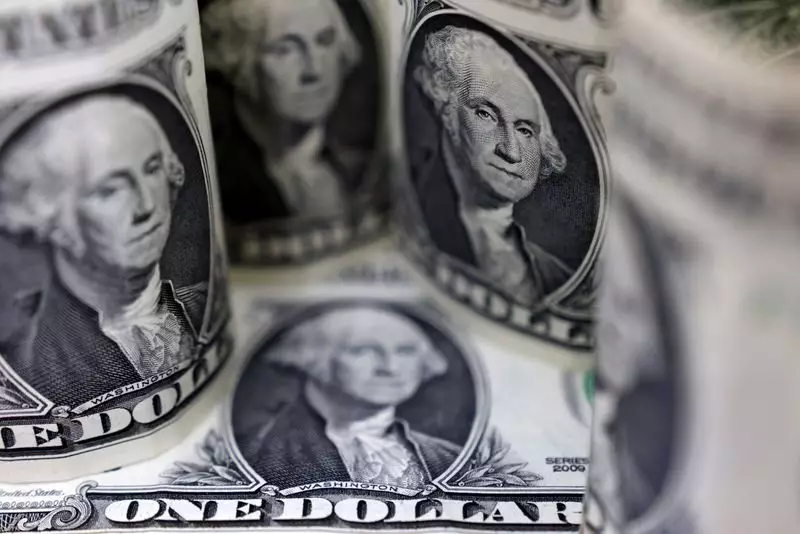The dollar weakened on Wednesday as Federal Reserve Chair Jerome Powell hinted at potential interest rate cuts in the near future. Powell expressed a desire to see further declines in inflation before making any decisions. This comes ahead of the release of the consumer price index (CPI) data which is expected to show easing prices in June. The market is eagerly awaiting the CPI report to gauge the future direction of interest rates.
Powell’s comments indicated that he is closely monitoring inflation trends and is not yet convinced that prices are sustainably moving towards the Fed’s target of 2%. Despite expressing confidence in the economy, he acknowledged the risks posed by the cooling labor market. His cautious approach has boosted market sentiment and raised expectations of a rate cut in the coming months.
Market Reaction
Traders are now pricing in a 73% chance of a rate cut by September, with the possibility of a second cut by December. The dollar is expected to weaken as a result of rate cuts, but traders are hesitant to fully price in this scenario given the uncertainty in the market. The dollar index, which measures the currency against a basket of others, was slightly down, reflecting the cautious sentiment among traders.
The outcome of the French elections, which resulted in a hung parliament, has added to the uncertainty in the market. The euro gained slightly against the dollar as investors reacted to the political turmoil in France. Meanwhile, the Japanese yen strengthened against the dollar, driven by the interest rate differentials between the two countries. Japanese private banks have urged the Bank of Japan to reduce its bond purchases, a move that could impact the currency markets in the future.
The Bank of England also hinted at potential rate cuts as it faces strong services price inflation and wage growth. The British pound rose to a four-week high in response to Chief Economist Huw Pill’s comments. In New Zealand, the Reserve Bank opened the door to rate cuts as it anticipates a slowdown in inflation. This contrasts with previous signals of a potential rate hike, highlighting the shifting dynamics in central bank policies.
Bitcoin, the most popular cryptocurrency, experienced a slight decline amidst the broader market uncertainty. The overall volatility in the currency markets has had a ripple effect on cryptocurrencies, highlighting the interconnected nature of global financial markets.
The currency markets are facing increased uncertainty as central banks signal potential policy shifts. Traders are closely monitoring economic indicators and central bank statements for clues about future interest rate movements. The volatility in the currency markets reflects the complex interplay between global economic factors and market sentiment.

